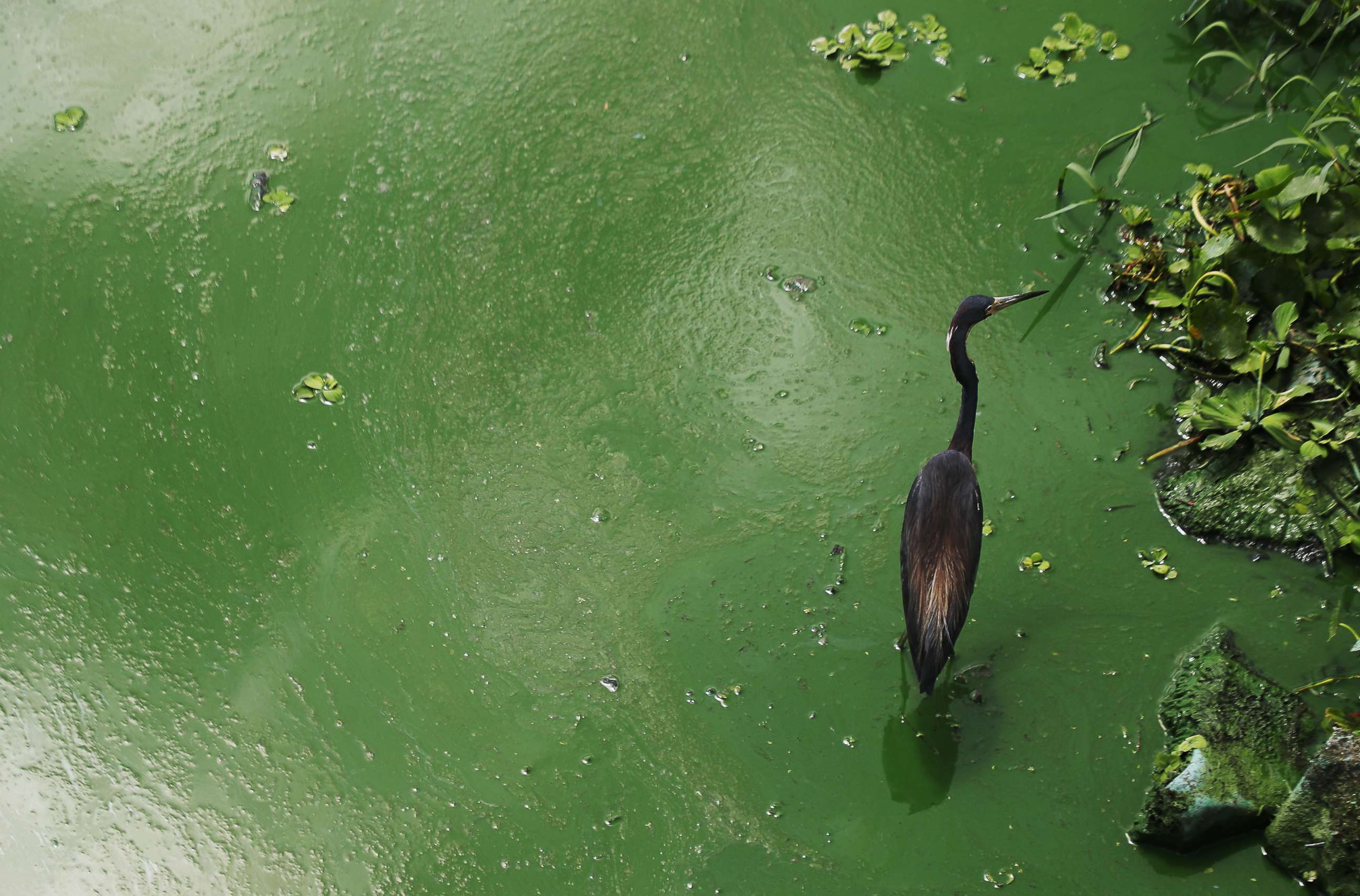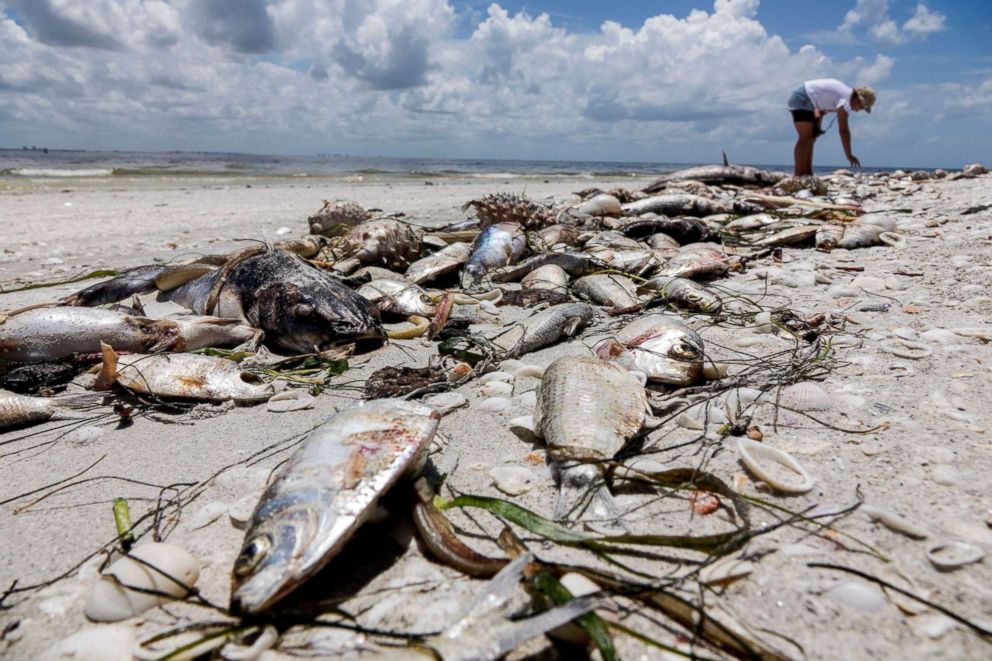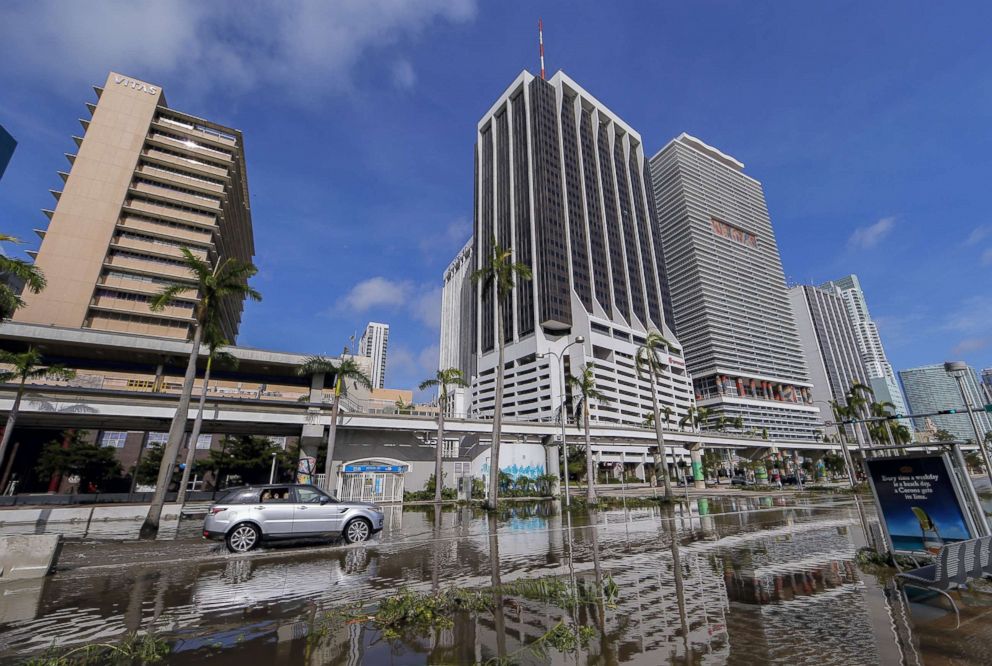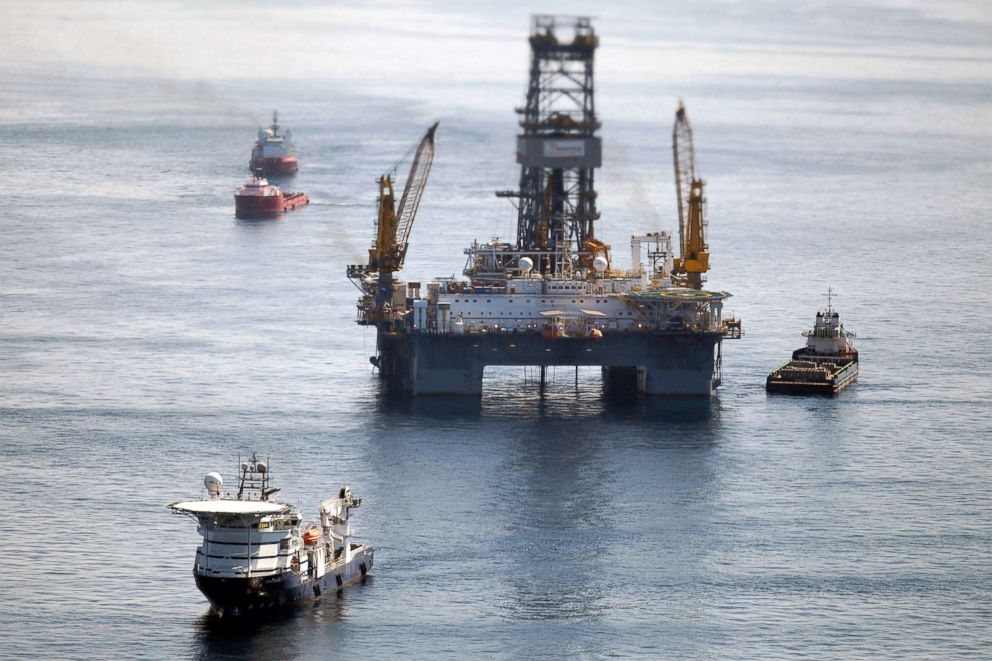How the environment has become a key factor in Florida's elections
Experts say algae blooms and offshore drilling could become big issues.
It was less than a month ago, in early August, that Southwest Florida fishing guide Nick Fischer told Good Morning America that a putrid combination of blue-green algae and a red tide in the region had him feeling anxious about the impacts the ecological disaster would have on his business.
“It’s economically affecting all of us, you can’t fish here and they [tourists] just want to get their families out of here and leave the area,” Fischer said. “This is what I do every day for a living, that’s how I, we provide for our families and I don’t know what to do.”
For Fischer, and a state that touts tourism as being the number one economic industry -- making up to 23 percent of the state’s sales tax revenue, supporting more than 1.4 million jobs and creating a local value up to $45 billion -- losing those vital customers has Floridians wondering if it’s time to approach environmental policy differently.
It’s all happening as the midterm elections are heating up in the Sunshine State and Floridians say they have one thing on their mind: how to protect their environment and their economy.
The algae blame game

As Florida reckons with two algae phenomena, one being the blue-green nutrient-rich algae in Lake Okeechobee, and the other being the naturally occurring red tide in the Gulf Coast shores, experts say Florida has never seen anything like what’s being experienced this summer. With a number of policy and funding rollbacks from current elected officials running for office, they don’t know when it will get better.
“The bloom may have naturally occurred, but naturally it might not have gotten as intense as it is now if didn’t have those nutrients from human sources that fueled the growth,” said Karl Havens, director of the Florida Sea Grant College Program and a professor at the University of Florida IFAS.
Those harmful nutrients being nitrogen and phosphorus seeped in the soil and wetlands north of Lake Okeechobee from pollutants like under-treated sewage water, leakage from home septic systems, and fertilizers from generations past after the state restricted the agricultural industry from using them.
When it comes to the red bloom, a naturally occurring algae in the Gulf Coast, Havens says human activity also complicated the issue even though currents mostly carried the algae to the shores. He says nutrients carried through canals from Lake Okeechobee to the Southwest Florida region made the red bloom more intense, in a region people would actually be affected by it directly.

In one Southwest Florida county, workers and contractors cleaned more than 2.7 million pounds of dead fish and sea creatures just halfway through the month of August. Since June, hundreds of dead sea turtles, marine mammals and a whale shark had washed up on the shores of Lee County.
“Those images are not leaving people’s heads, that’s not something that they’re going to forget,” said Daniel Andrews, a former Southwest Florida fishing guide and now the executive director of Captains for Clean Water. “It’s the most important issue to people down here right now.”
According to a Politifact and Tampa Bay Times report, in 2011 Republican Gov. Rick Scott’s administration cut $700 million in water management funding, about 40 percent of the state’s water management district's budget. Since 2012, the state’s water management district budget increased by about $300 million, making the overall budget cuts closer to $400 million since 2011.
Scott’s administration says water management districts create their own budgets. The budgets are ultimately approved by state leaders like the Florida Senate president, the Florida House speaker and each water management district’s leaders who are appointed by the governor.
However, Scott is running in a competitive senate race against Democratic Sen. Bill Nelson. Scott says this algae crisis is the federal government's fault.
In an ad released by the Scott for Senate campaign in early August, Scott says it’s the federal government who controls the Herbert Hoover Dike around Lake Okeechobee and it was Nelson who “made a pledge thirty years ago to solve the problem, but Nelson is a talker, not a doer.”
Although it is the U.S. Army Corps of Engineers that maintains the dike, Nelson’s campaign spokesperson Sebastian Kitchen released a statement shortly after the ad’s release shifting the blame back at the governor.
“Experts and scientists agree, Rick Scott’s almost eight-year assault on the environment has exacerbated the toxic algae outbreak plaguing much of Florida,” Kitchen said.
Since the back and forth, Scott has issued a number of state of emergencies regarding the algae blooms. On August 20 he requested the U.S. Small Business Administration issue an Economic Injury Disaster Declaration for Florida businesses affected by the algal blooms, giving them small business loans at a low interest rate to help them economically recover.
At the federal level, Nelson and Republican Sen. Marco Rubio are urging their colleagues to schedule a vote and approve the 2018 Water Resources Development Act that amongst other environmental policies, would include building a reservoir south of Lake Okeechobee. Experts say a reservoir would reduce nutrient-rich discharge into Southwest Florida waterways.
For some voters, all this election year action on behalf of their current elected officials might be too late.
“It’s not only an ecological disaster we’re having, it’s economically affecting all of us,” Fischer said. He says tourists visiting the state or the coastal regions are “not only canceling the fishing trips but canceling their hotel reservations. Everything.”
Dominic Calabro, president and CEO of Florida TaxWatch, says these environmental and economic concerns should go hand in hand for Florida leaders.
“These are important concerns that state leaders, particularly elected officials have to tend to,” Calabro said. “A good quality environment is absolutely essential and conducive to a sustainable economic growth and diversification.”
Opposing reactions to rising sea levels
While Floridians face dramatic algae outbreaks, another environmental issue due to affect some its most profitable regions are rising sea levels as homes face the immediate threat of flooding, are finding it harder to attain home insurance, and have a state government who has allegedly banned the use of words like “climate change.”
According to a recent study from the Union of Concerned Scientists, about 311,000 homes in coastal regions worth nearly $120 billion are at risk for chronic flooding over the next 30 years because of rising sea levels. Florida is the most at risk state with nearly 1 million homes in those potentially affected regions, making up more than 10 percent of the state’s current residential property.
For some places, rising sea levels haven't waited the estimated 30 years.

“If you go to a place like Miami, you’ll see stuff is built really close to the edge of the ocean and it’s not going to take a lot of sea level rise before there’s a problem and there already have been problems,” Havens said.
Former Miami Beach mayor Philip Levine has some experience in making rising sea levels a pivotal part of his policies and his campaign promises. After his 2013 election, the mayor sped up previous timelines and overhauled the city’s storm drainage systems, installed new pumps and raised roads. He now touts these accomplishments as one of five serious candidates in the Democratic race for governor.
On the other side of the political aisle, in March 2015 the Florida Center for Investigative Reporting released a story alleging Florida Department of Environmental Protection officials had been ordered by the Scott administration to not use the terms “climate change” or “global warming” in official communications, emails or reports. The policy is said to have taken effect shortly after Gov. Scott took office in 2011.
“You don’t have to believe that man is causing climate change, however there is data showing that sea levels have been rising so it doesn’t matter why,” Havens said. “We should be doing something about it no matter whether you’re a Republican or a Democrat.”
However, executive director of Florida Conservation Voters Aliki Moncrief says even voters might think of sea-level rise in economic terms as home insurance becomes more difficult for some homeowners to obtain.
“It’s a pocketbook issue,” Moncrief said. She adds that when it comes to some Florida candidates running for state office, “they know that when people walk into voting booths they’re thinking about the environment.”
Florida politicians fend off offshore drilling
One common point of strong opposition across Florida is offshore drilling and how it can’t get anywhere near the state’s shores and risk affecting its vital tourism industry. However, candidates haven’t failed to make it an election issue.
As recently as March 2018, Interior Secretary Ryan Zinke decided to retroactively exempt Florida from a list of possible coastal states that could see expanded offshore oil drilling after Scott asked President Trump’s administration to reconsider leasing the public waters.
Scott’s Senate campaign released a statement this month saying Nelson hasn’t fully appreciated the governor’s efforts to keep offshore drilling away from Florida.
“Bill Nelson’s position on offshore oil drilling is determined by the needs of his fellow Democrats and party bosses,” Scott Senate campaign press secretary Lauren Schenone said, listing Nelson’s 2010 support for an Obama administration plan to expand offshore drilling off of Florida’s shores.

Although Florida's politicians seem to have kept offshore drilling away from the state, for now, that hasn’t stopped some environmental groups from saying it still remains a possible risk if policy changes at the federal level.
“If you move drilling 100 miles closer to Florida beaches then you create this tremendous risk to Florida’s beaches if there’s another spill like the BP oil disaster,” Frank Jackalone, chapter director of the Florida Sierra Club said.
Ultimately, Jackalone says it comes down to what tourists would think of such a disaster and what that could do to the state’s economy.
“The visuals of gobs of oil scattered along the beaches are very dramatic,” Jackalone said. “That will definitely scare away tourism.”
Although oil from the 2010 Deepwater Horizon spill didn’t impact Florida’s shorelines nearly as much as it did for neighboring states like Louisiana, the environmental disaster had a lasting impact on the region’s tourism and the economy.
In a 2015 report from the Natural Resources Defense Council, estimates projected the Gulf’s coastal region tourism industry lost up to $22.7 billion through 2013 in the aftermath of the BP oil spill.
“You take a state where the number one economic driver is tourism and you put in oil wells offshore, all it takes is one accident to ruin an economy and a lot of valuable environmental assets,” Havens said.




